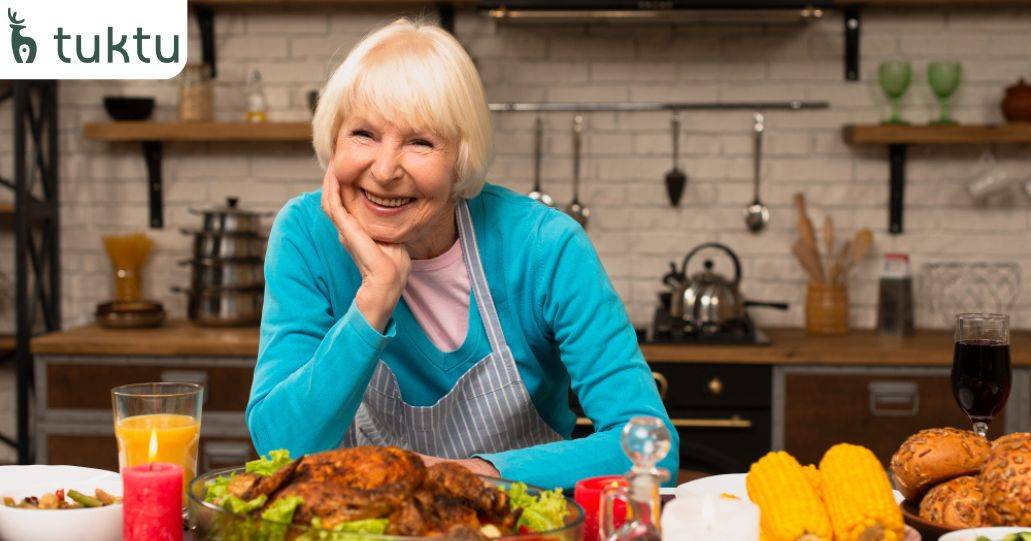Tea and Toast … Who Wants to Cook

At an event for caregivers and professionals in the senior care industry, I spoke with a caregiver who shared an interesting observation. She mentioned that many seniors she worked with often opted for quick meals like tea and toast instead of cooking full meals. She first noticed this pattern in her mother, whom she also cares for. The caregiver was concerned that her mother wasn't eating proper meals but found it challenging to cook for her due to her busy job and other household responsibilities.
Have you also noticed the older loved ones in your life skipping meals or eating less frequently? Appetite loss amongst seniors can occur due to a variety of reasons. Some of these reasons are within our control while others can be dealt with the right approach. Whatever may be the reason your loved one is not eating adequate amounts, informing yourself about the steps you can take can address the issue.
What are some reasons seniors may not be eating regularly?
Medication
Many older adults are prescribed a number of medications for their health issues and to improve their quality of life. However, some medications can act as a hunger suppressant, cause changes to metabolism and change the way things taste. A combination of these side effects can cause seniors to eat less or stop eating.
Forgetfulness
Seniors with memory problems and dementia may forget to eat or believe they have already eaten. For those suffering from dementia, as their illness progresses, they may lose interest in eating and even forget to swallow the food in their mouth.
Tiredness
For older adults, making grocery lists, planning meals, getting groceries and preparing food can all be tiring. The mental labor of thinking of recipes and planning in addition to the physical labor of getting groceries, standing in a hot kitchen and cooking can cause exhaustion. This is especially true if seniors live alone and have no one to help them with the process.
Physical limitations
Eating can become a chore if seniors face physical limitations such as poor vision, dental problems, change in taste and smell. As senses change with age, previously liked food can become unappealing to look at and eat. Additionally, people develop dental problems with age and have more difficulty chewing, eating too hot or cold foods.
With the understanding that eating habits change with age, you can help your loved ones eat healthy in adequate amounts by meal prepping. Meal prepping has several advantages that are discussed below.
Benefits of meal prepping for seniors
Saving on time
Whether you meal prep or hire someone to help your loved ones meal prep, doing so ultimately saves time. Setting aside a dedicated time to meal prep every week cuts down on the time required to make food on a day to day basis.
Saving on money
Meal prepping means having a meal plan so you can shop for the exact items required and cut down on reactionary buying. It also allows you to shop in bulk for the items you need which help in cutting down costs.
Convenience
Meal prepping lets your loved ones quickly eat when they feel hungry. They do not have to spend time thinking of what to cook or cooking. Creating a meal plan your loved one enjoys also makes mealtime something to look forward to. Portioning out meals also ensures they are eating enough.
Things to keep in mind while preparing meals for seniors
-
Make things they enjoy eating
This may seem obvious but it is imperative that you talk to your loved ones about what foods they like eating. Since meal prepping requires cooking food in batches, creating a meal plan with dishes they do not like is counterproductive.
-
Make food that they can eat easily
When meal prepping, it is important to ensure that the food prepared is accessible to the person eating it. If your loved one has arthritis in their hands don’t make something that requires cutting into, instead have bite sized pieces that can easily be picked up. If they have trouble chewing, cook softer foods which don't require a lot of chewing.
-
Rule out medical reasons as a cause for the loss of appetite
While loss of appetite amongst older adults is not uncommon, make sure there are no underlying conditions which may be causing your loved ones to eat less for forgetting to eat.
Making sure your loved one is eating properly and getting enough nutrition is vital to aging comfortably and avoiding additional health issues. With the help of Tuktu’s kitchen assistants you will no longer have to worry about your loved one not eating. Tuktu’s kitchen assistants will help prepare a meal plan according to your loved one’s preferences and dietary requirements. They can do meal prepping and batch cooking for convenient, ready-to-eat meals for the week.
If your loved one needs some assistance with cooking or just some help with grocery shopping, do not hesitate to contact Tuktu Care to know more. Our trained and empathetic providers will take care of your loved ones.


